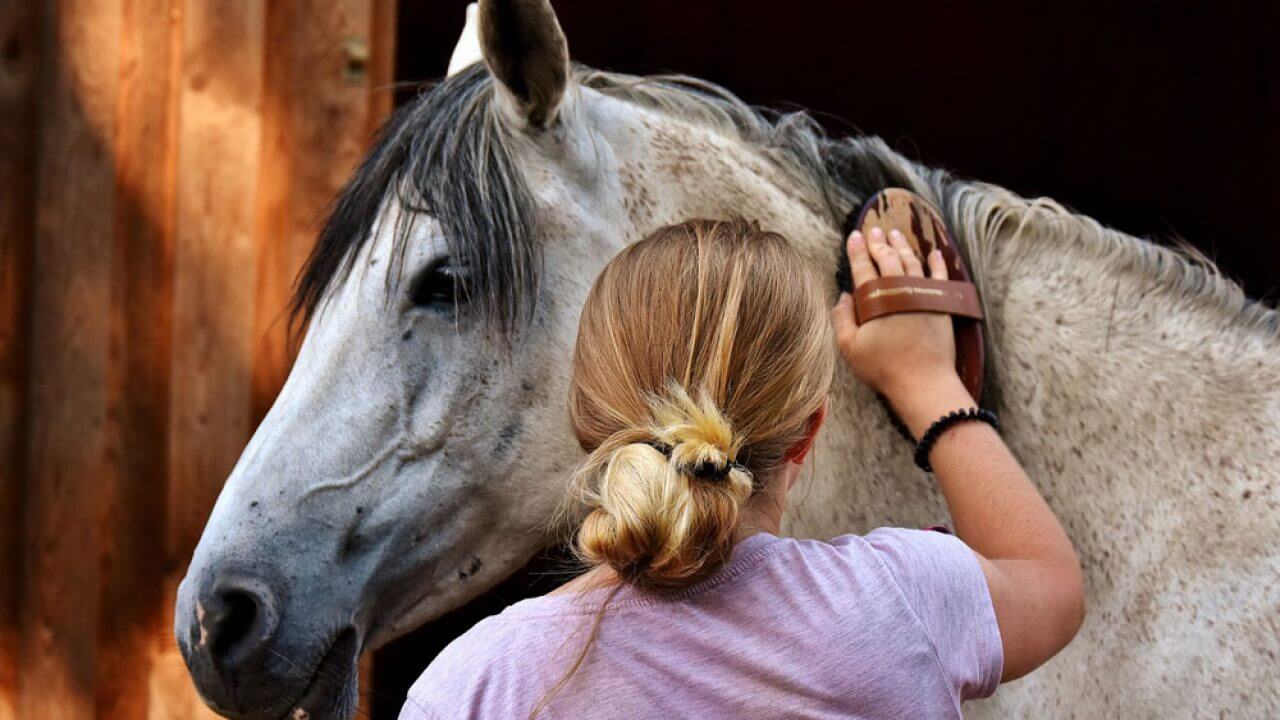Caring for aging horses requires special attention to their unique needs. As horses age, they experience changes in their health and behavior that necessitate a modified care approach. Understanding horse care for aging equines is essential for ensuring they live a comfortable and healthy life.

Understanding the Aging Process in Horses
Just like humans, horses go through an aging process. It’s important to recognize signs of aging in horses, such as graying of the coat, slower movement, and changes in appetite. These signs indicate the need for altered care strategies to support their health.
Nutrition for Senior Horses
Proper nutrition is vital for maintaining the health of aging equines. Older horses may have difficulty chewing and digesting food, necessitating a diet rich in easily digestible nutrients. Consider incorporating senior horse feeds that provide balanced nutrition tailored for their needs.
Ensuring Dental Health
Dental health is crucial for older horses. Regular dental check-ups can prevent issues like tooth decay and gum disease, which are common in senior horses. Learn more about horse tooth problems and how to address them.
Exercise and Mobility
Maintaining mobility is important for the physical and mental well-being of older horses. Gentle exercise routines can help keep them active without causing strain. Consult with a veterinarian to develop an appropriate exercise plan.
Managing Arthritis
Arthritis is a common issue in aging horses, affecting their joints and movement. Providing joint supplements and creating comfortable living conditions can alleviate discomfort caused by arthritis.
Regular Veterinary Care
Frequent veterinary check-ups are essential for monitoring the health of senior horses. Regular evaluations help detect potential health issues early and ensure timely interventions. Explore more about horse dental exams and their importance.
Creating a Safe Environment
Older horses require a safe and comfortable environment. Ensure their living spaces are free from hazards and provide adequate shelter from harsh weather conditions.
Temperature Regulation
Aging horses have difficulty regulating body temperature. Ensure they have access to shade in the summer and warm shelter in the winter to prevent temperature-related stress.
Monitoring Behavioral Changes
Behavioral changes in aging equines may indicate health issues. Pay attention to signs of discomfort, changes in eating habits, and social behavior.
Supplementing with Vitamins and Minerals
Older horses may benefit from supplements that provide essential vitamins and minerals. Consult a veterinarian to determine the appropriate supplements for your horses specific needs.
Omega-3 Fatty Acids
Omega-3 fatty acids support joint health and reduce inflammation in senior horses. Incorporating these into their diet can improve overall well-being.
Hydration and Water Intake
Ensuring adequate water intake is crucial for older horses. Dehydration can lead to health issues, so provide fresh water at all times and monitor their drinking habits.
Social Interaction and Mental Stimulation
Keeping senior horses mentally stimulated and socially engaged is important for their emotional health. Provide opportunities for social interaction with other horses and engage them with toys and activities.
Companion Animals
Companion animals can provide comfort and companionship to older horses, reducing loneliness and promoting a sense of security.
Recognizing Signs of Pain
Identifying signs of pain in aging horses is key to addressing their needs. Look for signs like limping, reluctance to move, and changes in posture. Consult a veterinarian if you notice any of these symptoms.
For more in-depth information on senior horse care, check out this comprehensive guide on caring for senior horses.

FAQs on Horse Care for Aging Equines
What are common health issues in aging horses?
Common health issues include arthritis, dental problems, and digestive issues. Regular veterinary care is crucial for early detection and management.
How can I improve my older horse’s diet?
Incorporate senior horse feeds that are easily digestible and provide balanced nutrition. Consult with a veterinarian for personalized dietary recommendations.
Why is social interaction important for senior horses?
Social interaction reduces stress and improves emotional well-being. Engage them with other horses and provide mental stimulation through activities and toys.
This article contains affiliate links. We may earn a commission at no extra cost to you.
